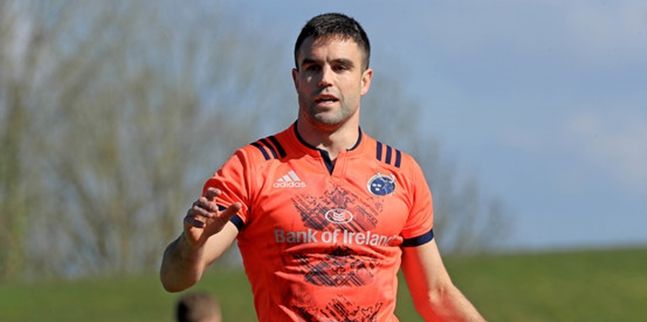

Share
14th April 2018
11:37am BST

"And there's finding out what weight suits you to play rugby. In school, people are probably obsessed with size and being as big as they can, and that's not necessarily a good thing. For certain positions, it is. "I eventually found - and it was a couple of years when I was into professional rugby - a weight that I was happiest with playing at. It was the weight I felt I could be most effective at and play my best rugby at. That does take a bit of time and it is another area you have to figure out as an individual. "I know what weight I like to play at, at this stage of my career."For Murray, that weight is 92 kilograms [14st 7lbs]. He usually starts the season a couple of kilos heavier but that gets burnt off as the games and training sessions tick by.
 The issue of young players bulking up was raised by Kevin McLaughlin in an earlier episode of The Hard Yards. The former Leinster and Ireland flanker commented:
The issue of young players bulking up was raised by Kevin McLaughlin in an earlier episode of The Hard Yards. The former Leinster and Ireland flanker commented:
"It seems to be the way the game is going and I know Leinster and Munster are going around to the schools and getting guys on weights programmes at 15 or 16. Maybe they should be putting just as much emphasis on getting them on skills programmes, just to make sure they can cope. "That's definitely the gap we have with countries like New Zealand, where they have the power and strength but they seem to be putting the emphasis in skills. I not sure we are putting the emphasis in the right places in terms of development of skills but you have to be physically developed to be able to cope [in professional rugby]."There has been a shift in the direction of working on players' basic skills in recent years but the need to get big fast is still far too prevalent.
Explore more on these topics: